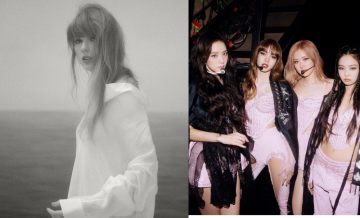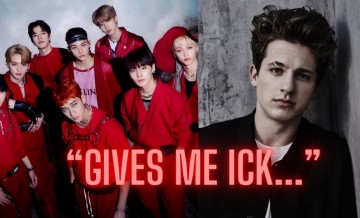Korean Classic Albums: Key Brothers Find Their Voice On The Seminal 1971 Release 'Mare Throat' [AUDIO]
There's a classic old film cliché, where the seasoned master tells a talented youngster, "you're good."
"With my help, you could be the best."
Key Brothers, one of the Korean forefathers of psychedelic rock, embody the spirit of that talented youngster. By attempting to imitate the Western rock and pop of the 1960s, they honed their own skills and discovered some new places their sound could take them.
On the group's second album, "Mare Throat," released in 1971, Key Brothers tried their hand at covering the greats, but discovered their own voice along the way.
After his group the Key Boys broke up, vocalist Yoon Hang Gi formed the similarly-named group Key Brothers. The band of players Yoon assembled had a loose, wild feel that suited the material.
The psychedelic checklist is in full effect on "Mare Throat." Farfisa organ, shimmying percussion and fuzzed-out guitar are all over this album.
The second side of "Mare Throat" is a re-release of their debut album's material, but it's understandable that the label would want to extend the life of those recordings; they're some the hardest party recordings to come out of Korea in that era.
But first things first, and discuss the first side of "Mare Throat." For my money, that's where the action is.
The keyboard line that emerges as you drop the phonograph needle at the beginning of the album will ring loud bells for classic rock acolyte; it's the lazily serpentine riff from Procol Harum's "A Whiter Shade of Pale."
As the song progresses, however, it's clear that this is not a straight-ahead cover.
Key Brothers are taking the source material and bending it slightly. Is this a sneaky attempt at circumventing copyright? Or just creative license? Either way, it's a disarming take on that psych-lite proto-prog jam.
Next, Key Brothers boogie their way through an unmistakeable version of the Creedence Clearwater Revival (CCR) song "Lodi." One has to wonder if the song's lament of provincial boredom resonated with these musicians, who also, shall we say, borrowed, the album cover of CCR's 1969 release "Bayou Country" for the cover of "Mare Throat."
The Key Brothers affably groove on the CCR rhythm, stumbling slightly, but powering through with a lot of heart.
By the album's third cut, the band starts to reveal an oddball side to their personality. "Wandering Life," is the first original song on "Mare Throat." The bassline that serves as the song's intro seems to suggest that the Key Brothers are about to try their hand at Led Zeppelin's "Whole Lotta Love."
That doesn't happen.
The word "original" actually works on two levels here. Not only is "Wandering Life" penned by the members of Key Brothers, it is also a strikingly novel piece of caustic funk.
The gutbucket guitar, jarringly loud in the mix, is played with a kind of primal ferocity that predates the no wave bands that would terrorize New York nearly a decade after the release of "Mare Throat." The drums have a robotically mechanistic feel to them, which you could possibly attribute to the influence of Devo, even though that group wouldn't form until roughly a year later.
At this point on "Mare Throat," it becomes clear that Key Brothers were no mere imitators. They were absorbing the sounds of Procol Harum, CCR and others, but developing their own idiosyncratic voice in the process.
"Wandering Path" is true to its name, moving forward with a suite-like motion from one sonic space to another.
After a few minutes of sounding like a heavily mutated version of the JBs, a taut second section kicks in, channeling the tight repetition of Can drummer Jaki Liebezeit. Before long, Key Brothers have switched gears yet again, this time into a sleazy halftime blues.
It's garage rock. It's psychedelic. It's punk.
It's a very complex piece that could only have come from Key Brothers. Their personal experience of taking in music through their unique lens and then reflecting it back onto tape created "Wandering Path" in a way that no other band could have. While that song alone is worth further effusive praise, the second side of "Mare Throat" deserves some attention as well.
Their influences weren't strictly Western: the second track on the second side is a chaotic take on a gem by Shin Joong Hyun himself, "A Cup of Coffee."
The staggering amount of percussion that is shaken, beaten, and otherwise abused throughout this version of "A Cup of Coffee" is so intense, it can barely find leave for the other musicians to breathe. The song fades out, suggesting that the drum circle continued late into the session.
The album ends with a 10 minute, cowbell-heavy march through Santana's "Evil Ways."
Again, this recording seems to embrace the then-popular practice of endless overdubbing, but only smearing on even more percussion! Our guitarist here is no Carlos Santana, but who is? They're having a truly great time, and that's ably communicated.
While the early days of Korean psychedelic rock often consisted of endless imitation, on "Mare Throat," Key Brothers prove that this is not necessarily a bad thing. Even traveling via the vehicle of other peoples' music, their irrepressible voice can be heard.
Check out the classic 1971 Key Brothers album "Mare Throat" RIGHT HERE
Jeff Tobias is a composer, multi-instrumentalist, and writer currently living in Brooklyn, New York. Most recently, he has been researching the history of tuning systems and working on his jump shot.
















